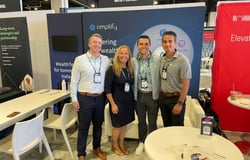We're hiring a Staff Software Engineer to lead the design and development of high-scale backend systems for our Gaming Integrations team. This is a hands-on IC role focused on building modern, resilient infrastructure and accelerating our adoption of AI across the platform. You'll play a critical part in architectural decisions, mentoring engineers and setting the foundation to up-level and scale the team, while working with cutting-edge tools.
What you’ll do
- Own the software lifecycle: define templates, checklists, and playbooks for provider integration—from due diligence and certification to rollout, monitoring, incident response, and deprecation.
- Unblock delivery: dive into designs/PRs/spikes where needed to remove technical or organizational blockers—without becoming a single point of failure.
- Shape the roadmap: contribute to multi-quarter technical strategy for integrations, influence the multi-quarter roadmap by identifying platform gaps, vendor risks, and scalability constraints—balancing long-term resilience with short-term delivery.
- Raise the bar on code & architecture: set patterns for API contracts, reliability, observability, testing, and versioning; reduce complexity and tech debt with clear guardrails.
- Establish crisp engineering rituals: pragmatic planning, estimation, risk tracking, and stakeholder status; lead critical project reviews and improve signal-to-noise in updates.
- Be a role model for other engineers: Champion high standards, demonstrate ownership, share knowledge, represent the team with product, compliance, security, data, SRE, and external providers.
What you’ll bring
- 8+ years in software engineering, with 3–4 years leading complex backend work where you raised team standards (process, design, testing, documentation).
- Hands-on with Node.js + TypeScript delivering production services and integrations.
- Kubernetes in production, running and debugging Node.js services and comfort with modern CI/CD.
- REST APIs: designing robust, versioned, well-documented contracts.
- System Design – Proven ability to design scalable, distributed systems
- Architecture – Experience defining and evolving software architecture at scale
- Testing – Define and champion test strategies that improve speed, confidence, and reliability across integration pipelines.
- AI Adoption – Explore and prototype applications of AI to improve observability, automate integrations, or assist developer workflows.
- Operational maturity: SLIs/SLOs, on-call/runbooks, and blameless incident reviews that drive learning.
- Stakeholder presence: clear written and verbal communication with technical and non-technical audiences.
Nice to have
- Experience in gaming/fintech/e-commerce integrations (catalogs, wallets, identity, compliance).
- Event-driven patterns (e.g., Kafka) and low-latency/high-throughput systems.
- NestJS – Familiarity with modular, server-side frameworks
- AWS Services – Experience with services like DynamoDB, Cognito, S3, and Secrets Manager
What success looks like
- You’ve helped reduce time-to-integrate for new providers from weeks to days.
- You’ve introduced architectural patterns that improve testability, observability, and reliability at scale.
- Other engineers seek your input on tough design or debugging problems—and you lift them up without becoming a bottleneck.
- You’ve made high-quality decisions visible through crisp docs, ADRs, and technical writeups.
Top Skills

What We Do
Happening is the technology engine powering Superbet Group's global platforms and brands that bring thrill to customers across the world every day.
We are a game-changing tech company rewriting the rules of sports betting and gaming. We are shaking up the status quo by building our own end-to-end tech stack, solving deep and complex challenges for millions of customers and shaping our culture to work uniquely for the tech community.
A true challenger, our technology handles serious scale on par with the Big Techs, and customer obsession runs through every team. Building our own platform gives us freedom to innovate and flip the legacy perceptions and industry stereotypes.








